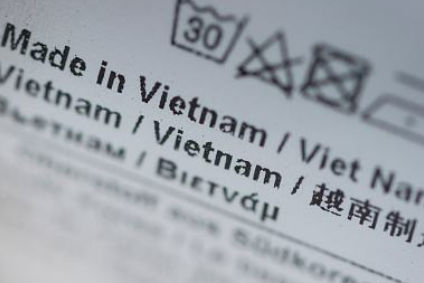The recent decision by Vietnam’s National Assembly to ratify one of the International Labour Organization’s (ILO) fundamental conventions to promote collective bargaining sends “a strong signal” to the country’s garment industry and could lead to higher productivity in the sector.
The milestone move last month (14 June) saw all of the 452 National Assembly deputies present at the session vote yes to the government dossier for ratification of ILO Convention 98 on the ‘Right to Organise and Collective Bargaining’ – which it plans to adopt at its next session in the autumn of 2019.
Convention 98 is one of the eight ILO core conventions under the ILO’s 1998 Declaration on Fundamental Principles and Rights at Work, which covers: freedom of association and the effective recognition of the right to collective bargaining; the elimination of all forms of forced or compulsory labour; the effective abolition of child labour; and the elimination of discrimination in respect of employment and occupation.
And it will have important consequences for the nearly US$30bn garment industry, says the head of the Better Work programme in Vietnam.
“With the Assembly’s vote, the government has sent a strong signal regarding the direction of industrial relations in Vietnam. True worker and management engagement will play an ever increasing role in the economy,” says Paula Albertson. All those involved with the industry need to prepare for these changes.”
The convention requires the Vietnamese government to implement legal and institutional steps to promote collective bargaining and provide ‘adequate protection’ against discrimination by employers of worker or union officials, and protect against interference of unions by the State, employers or other unions.

US Tariffs are shifting - will you react or anticipate?
Don’t let policy changes catch you off guard. Stay proactive with real-time data and expert analysis.
By GlobalDataAs such, it echoes Better Work’s factory level approach to strengthening social dialogue, where open and representative elections for worker-management committees are a key part of its strategy.
Better working conditions
ILO Vietnam director, Chang-Hee Lee, believes the ratification of Convention 98 “will accelerate the spread of genuine collective bargaining…which is likely to result in better working conditions, higher productivity and shared prosperity, contributing to sustainable development.”
It is also likely to strengthen the legitimacy and bargaining position of grassroots trade unions by reducing the control or influence that management representatives have traditionally exerted. In many factories, for example, a senior manager or human resources manager may also act as the trade union chair.
And for many businesses and unions, it will mean a significant change in the way they currently operate, explains Lien Pham, operations manager of Better Work Vietnam.
“A lot of this is new for Vietnam. There will need to be a process of awareness-raising at the local level on the implications of this shift in national policy, and guidance for factories in implementing the necessary changes.”
Better Work – a collaboration between the United Nations’ ILO and the International Finance Corporation, a member of the World Bank Group – is expected to have a key role in providing support to the factory management and unions so that they can benefit from these developments.
Convention 98 is the sixth fundamental convention Viet Nam has ratified. They also include Convention 29 on forced labour, Conventions 100 and 111 on non-discrimination, and Conventions 138 and 182 on child labour.
The country is also working on the preparation to ratify Convention 105 on forced labour by 2020, and Convention 87 on freedom of association by 2023.
The ratification should also reassure members of the European parliament that Vietnam is committed to continuing its positive process of reform. Europe is edging closer to the EU-Vietnam Free Trade Agreement (EVFTA), which is now being presented to Vietnam’s National Assembly for ratification and on the EU side to the European Parliament for its consent – after which the trade agreement can be officially concluded by the Council and enter into force.
Once in force, the EVFTA will eliminate over 99% of customs duties on goods traded between the two sides.
The ILO is also engaged in a programme in Ethiopia involving its key components – Better Work, Vision Zero Fund, SCORE and LABADMIN – which began rolling out earlier this year. It has most recently launched a programme to promote decent work and inclusive industrialisation in Ethiopia – with an initial focus on the garment and textile industries.





